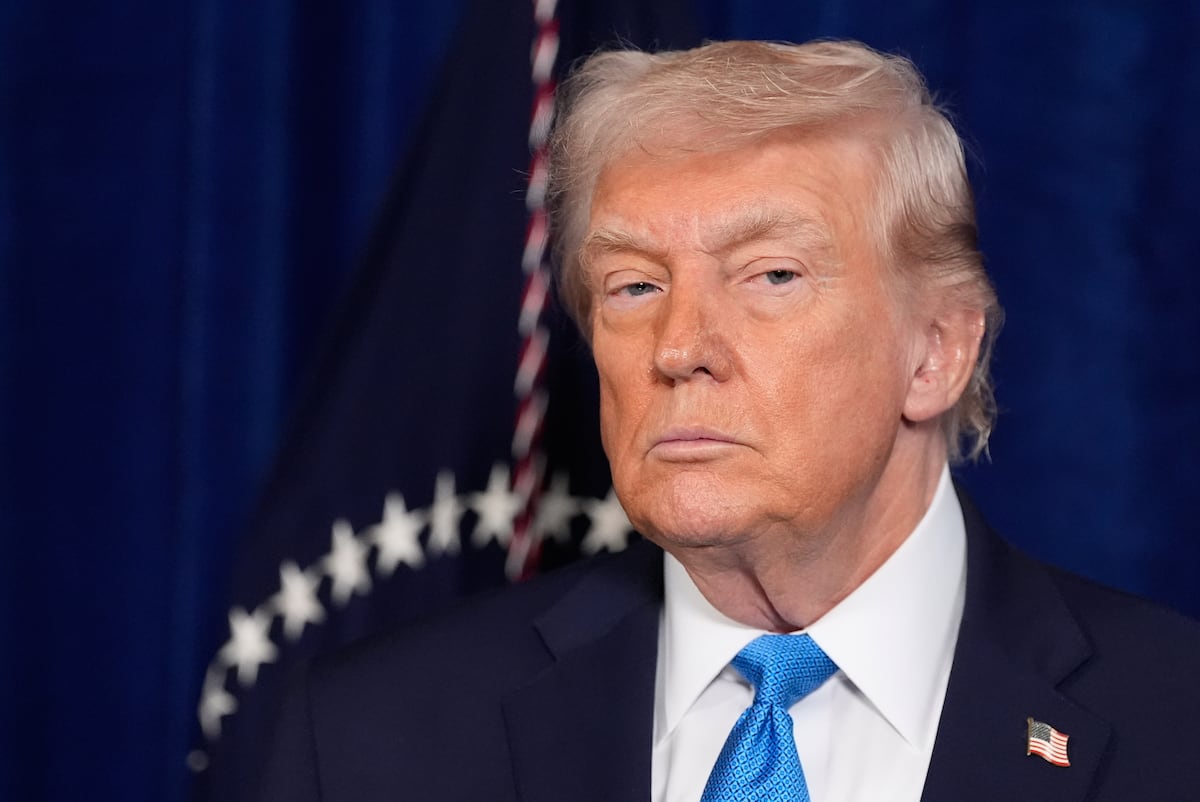Trump Secures Preferred Military Advisor Amid Controversy
After a two-month vacancy, President Trump has finally confirmed his chosen top military advisor, retired Air Force Lt. Gen. Dan Caine. The Senate approved Caine as the next chairman of the Joint Chiefs of Staff with a late-night vote that concluded 60-25. Caine’s extensive experience in the Air Force, particularly with F-16 aircraft, along with his previous role as a counterterrorism advisor under President George W. Bush and his command of special operations in Iraq post-2003 invasion, positions him as a formidable choice for this critical leadership role.
However, Caine’s appointment comes against a backdrop of significant political contention. His predecessor, Air Force Gen. Charles Q. Brown, Jr., was ousted in February, a move many perceived as a part of Trump’s broader campaign against diversity initiatives within the military. Critics have pointed to statements from Trump appointees who assert that diversity policies enacted by the Biden administration have led to the promotion of "unqualified officers." Despite Caine’s wealth of experience, he lacks some prerequisites outlined by a 1986 law for the Joint Chiefs position, including prior service as a combatant commander or military service chief. To navigate this obstacle, Trump presented Congress with a waiver, arguing that Caine’s leadership is crucial for national interests.
The Senate’s decision to confirm Caine was largely anticipated, as many Democrats viewed him as the best option available given the circumstances. This bipartisan acknowledgment illustrates a growing consensus within the political arena regarding the necessity of stable military leadership during uncertain times.
Pentagon’s Cost-Cutting Measures
In a parallel development, the Pentagon has recently initiated significant cost-cutting measures, terminating over $5 billion in “non-essential” IT contracts with major consulting firms like Deloitte and Booz Allen Hamilton. This announcement, which Defense Secretary Pete Hegseth made, aligns with the Biden administration’s ongoing quest to eliminate wasteful spending at the Department of Defense (DoD).
The cuts focus on wide-ranging consulting services that supported various military branches and agencies, including the Navy, the Air Force, and the Defense Advanced Research Projects Agency (DARPA). Hegseth has called for the Pentagon’s civilian workforce to take over these IT duties, a decision that may prove controversial given the existing tensions surrounding staffing and budget constraints within the department.
Moreover, Hegseth has canceled 11 contracts across DoD components related to Diversity, Equity, and Inclusion (DEI), Climate initiatives, and other activities deemed non-essential. He categorized these terminations as reflecting “$5.1 billion in wasteful spending,” seeking to tighten the fiscal reins of the military establishment.
Impact on Military Operations and International Aid
Interestingly, Hegseth’s absence from a vital meeting of the Ukraine Defense Contact Group has drawn attention. Co-hosted by the UK and Germany in Brussels, this meeting has been crucial for coordinating military aid to Ukraine, which has faced significant aggression from Russia. In contrast, allies like the UK have pledged an additional $580 million in aid to Ukraine, emphasizing the significant divergence in approach between the current U.S. administration and its European counterparts.
In recent weeks, billions have been committed by Ukraine’s European allies, fostering a robust international coalition to support the Ukrainian armed forces. Reports indicate that NATO and the European Union together have pledged over $46 billion in military and humanitarian assistance in just the first quarter of 2025, illustrating the critical role of international partnerships in defense and security operations.
Geopolitical Ramifications and Domestic Military Changes
The geopolitical landscape remains fraught with tension, as children in occupied Ukraine are reportedly participating in “Zarnitsa 2.0,” a military-patriotic game that aims to instill basic military skills in preparation for eventual military service. This educational initiative is emblematic of Russia’s broader efforts to solidify its influence and militarize the younger generation of Ukrainians.
On the domestic front, Trump’s envoy on Ukraine, Steve Witkoff, traveled to Russia to meet with President Vladimir Putin, a move laden with intrigue given the current geopolitical climate. This visit signals Trump’s intent to engage in closer relations with Russia, further complicating the U.S. position in the ongoing conflict involving Ukraine.
Further complicating matters, the recent dismissal of the commander of the U.S. base in Greenland following controversial political statements serves as a stark reminder of the delicate balance between military authority and political directives within the current administration. The Pentagon has explicitly conveyed that undermining the chain of command will not be tolerated, accentuating the administration’s focus on loyalty and adherence to political mandates.
The unfolding developments in the military sector under Trump’s administration, combined with heightened international tensions, reflect a period of significant transformation within U.S. national security strategy. As the landscape continues to evolve, the implications for both military operations and international relations remain to be seen.





